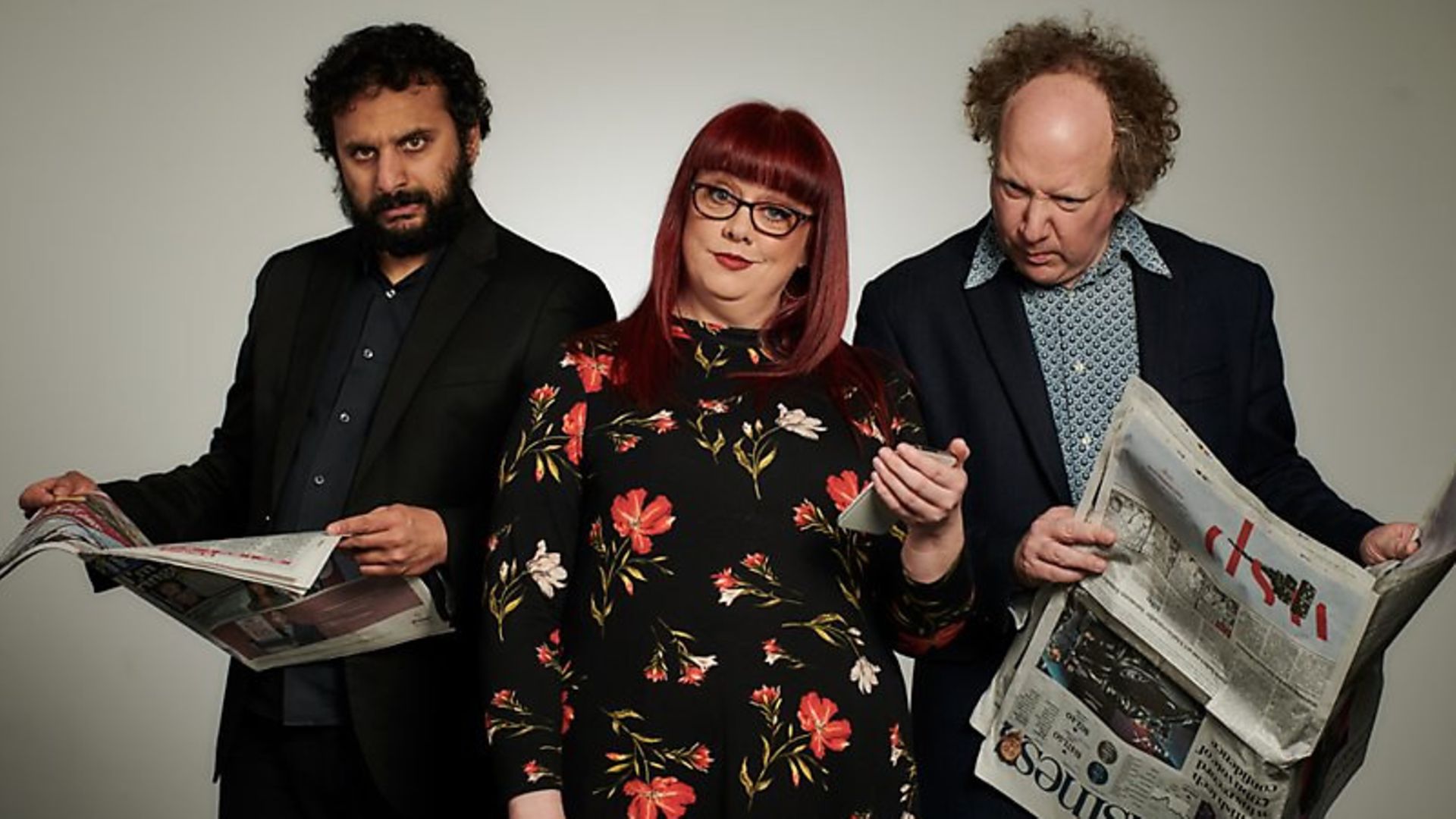
It seems an age since I was bemoaning the presence of FriendsFest – a static exhibition and performance event celebrating the quondam sitcom – in my local park. That was over a year ago, but the delving and diggings in the hallowed turf remain. Obviously the pandemic put paid to the punters kicking up divots as they roared with laughter, again and again, at the antics of Rachel, Ross and Joey et al., but along with the grotesque display of fandom went something far more precious: the live audience.
It was always one of the selling points of the show that it was ‘filmed in front of a live audience’; yet any sense of spontaneity this might have engendered was utterly vitiated by the way that audience’s response was subjected to post-production. I think Friends was one of the first sitcoms I can remember watching where the rise and fall of the audience’s collective ejaculations was so tightly calibrated – and massively enhanced – that it seemed as mechanical as the canned laughter it was intended to replace.
Still, what would the mummery of the Manhattan flatmates have been like without it? Pretty dull, really – and certainly not at all funny. Watching Friends with my eyes shut, it occurred to me that humour itself was simply a collective ejaculation: an involuntary spasm – like a yawn or a sneeze – engendered by mere propinquity to others doing the same, rather than anything intrinsically risible; for I laughed quite as much as when my eyes were wide open, and staring into the abyssal interior of the Friends set.
Anyway, all of this spooled through my head as I listened to the News Quiz on Radio 4 the other day. This picture-free version of television’s Have I got News for You, features comedians and other wits wisecracking about the end-of-the-pier-show that constitutes our current affairs. For some time now the News Quiz has been without an audience – but they were at last back, albeit virtually, and I immediately noticed an improvement. Despite being atomised, the virtual presence was nevertheless sufficient to produce that critical mass of chuckling, such that the panellists did indeed seem to be… funny; whereas when I’d tuned into the show to hear them without such a chorus, their flights of fancy had fallen very flat indeed. Moreover, the dead air seemed to seep from the radio’s speaker, suffusing my entire flat with dread unfunniness.
This may have been one of the unforeseen consequences of the pandemic: boosters like to figure the mass substitution of the virtual for the actual as in some sense serendipitous. But if it’s lucky that we have technologies capable of producing a version of human presence when the risk of an infectious disease has driven us apart, is this luck not cancelled out by technologically-induced character of that disease itself? Freud put it succinctly when he noted that had the train not been invented – so facilitating his son’s departure to live in another city – he wouldn’t need the telephone to talk to him. By the same token: the referendum of 2016 was intended – by those who insisted on it – as an opportunity to wrest the tiller of the ship of state from the febrile hands of ‘experts’ – but where are we now, if not in thrall to the next statistician/epidemiologist/virologist who surfs the airwaves.
What we’ve all become experts on, of course, are the amplitude and frequency of those airwaves. If we’d thought the transition from analogue to digital was an occasion for the subtleties of verisimilitude to be mulled over, it now seems merely a prelude to this grand factoring of the actual into the virtual. We sit in reclusion – monks fixated on our pixelated missals – acutely aware of whether the words of these mediatised gods are being picked up by professional microphones in a soundproofed studio, or relayed by a humble laptop or mobile phone. The great novelists of the 19th century laboured to defeat social taboos and present human lives in all their vivid, viviparous reality: naturalism and realism were conceived of as modes of artistic representation free-floating from their media.But throughout the 20th century, and now into the 21st, the message of those media has come to be far more significant than any mere artistry – and that message is: fidelity, the higher the better.
It’s said that when people heard the first wax-cylinder recordings of Chaliapin singing the Song of the Volga Boatmen, they searched the room for the operatic bass, so convinced were they that he must indeed be present. Now we have ultra-high definition televisions that can transmit images which have a level of detail greater than can be discriminated by the human eye. In a word, if fidelity equals actuality, these images are realer than reality itself. Meanwhile, if we were to find Chaliapin sounding off behind a curtain, we’d probably berate him for not wearing a facemask. This is how the world ends – not with live-action bang, but a pre-recorded whimpe









